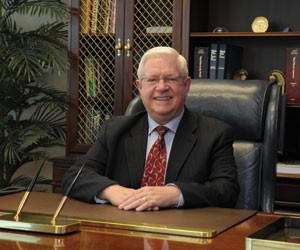Some people like to run in their free time. Others enjoy reading, scrapbooking or maybe traveling or golfing. But ask Rev. Harry Schmidt what he does for fun, and he’ll say plan meetings.
“What I enjoy doing most is conference planning,” says Schmidt, who’s been an extracurricular meeting planner since the mid-1970s. “When somebody says what they want their meeting to accomplish, it’s like a gigantic puzzle. I love helping them put the pieces together.”
Over the last three decades, Schmidt has put together scores of meeting planning puzzles. Although his principal role for the last 16 years has been that of president at Christian Life College, in Mount Prospect, Ill., he’s spent at least 15 of those years planning up to 17 meetings a year on behalf of eight different associations—all as a volunteer.
At last, however, Schmidt has the opportunity to turn his part-time passion for meetings into a full-time vocation. In November 2011, the Indianapolis-based Religious Conference Management Association (RCMA) named him its new leader, replacing longtime Executive Director Dr. DeWayne Woodring, who retired in December.
Meetings Focus South spoke with Schmidt about his new role at RCMA, as well as current challenges and trends in religious meetings.
MFS: RCMA is celebrating its 40th anniversary this year. What are your goals for its next 40 years?
Schmidt: Although we have a trade show and annual conference, that’s only one segment of our association. So I want to do build and expand the association’s other components, enlarging the membership of both planners and suppliers by adding year-round value to both groups.
We’re going to start doing year-round educational programs by breaking the U.S. into six different regions and bringing planners and suppliers in those areas together for one-day seminars. Another thing we’re planning is to launch advisory councils. We want to be in tune with the needs and desires of our membership. To do that, we need to listen not just for listening’s sake, but with the intent of application.
Of course, my obligation is not only to build our association exclusively; we can only build ourselves if we help our partners. So I want to make RCMA more available to suppliers. Their younger sales associates are often charged with bringing in the SMERF market, yet they often have no comprehension of the religious market. My goal is to provide tutorial and mentoring tools to help our suppliers equip and train their people.
MFS: You became an RCMA member in 1989. How has the association changed?
Schmidt: Several things in recent years have affected not only us, but all meeting planning associations. We started 40 years ago, when our annual conference was just a very small room with fewer than 100 attendees and a couple of exhibitors. Now, we’re seeing a sea change, brought about by technological advances and the fact that today, perhaps like never before, both the private secular and religious environments are pressed financially.
As a result, many organizations have cut back on conference staff and look at other options, such as outsourcing. Then, of course, there’s the higher cost of putting a conference together. That’s all created new challenges.
MFS: How have religious meetings fared during the economic downturn?
Schmidt: Historically, recessions affect the corporate sector on the front end and then trickle down to the religious side. That’s because many corporate meetings are high-dollar meetings, but the folks who come to annual religious conferences aren’t traveling with per diems. They’re paying out of pocket and will do so until that pocket gets stretched too thin.
From what we’ve seen, that’s been true this time as well. Our members’ numbers have been decreasing. On the flipside, when the business cycle picks up, we pick up, too, and I can tell from the people I’ve been working with that they are already planning more meetings.
MFS: What trends have you noticed within the religious sector?
Schmidt: One thing we see is there are constantly new groups emerging. In particular, you’re seeing megachurch ministries across America now becoming so large that they’re creating their own national conferences, drawing 5,000 to 15,000-plus people.
Another thing we’re seeing is growing immigrant populations—whether it be South Korean, Chinese or Latin cultures—are creating their own [religious groups] and new markets.
MFS: Have suppliers begun to recognize the contributions religious meetings make to their bottom line?
Schmidt: Absolutely. Although it’s often referred to as a niche market, religious planners plan meetings year-round and often help fill distressed periods at hotels when the corporate business isn’t there. And, again, because we tend to carry through recessions longer, we can be a bridge to suppliers. Suppliers also appreciate that religious folks are relationship-minded. When proper relationships are built—whether it’s with a hotel chain or a destination—you’ve got religious customer loyalty. Our people are going to communicate their satisfaction to other planners really strongly.
We don’t bring in the largest dollars, but we’re there and we’re consistent.
Matt Alderton is a Chicago-based freelance writer who writes regularly about meetings.






